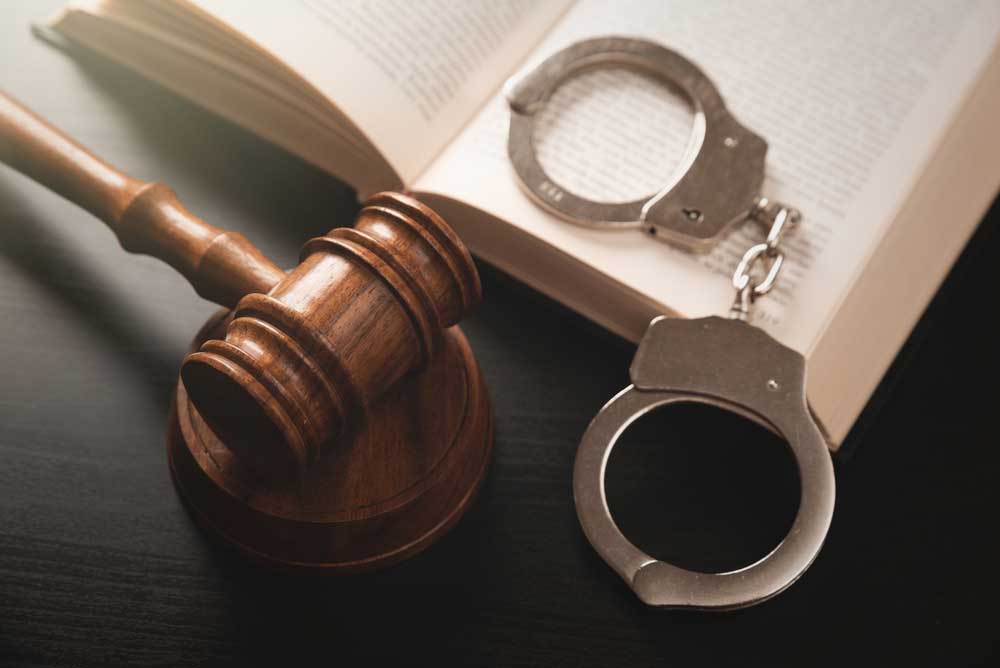Exploring the Tasks and Features of an Expert Appellate Attorney

The Duty of an Appellate Attorney
Appellate attorneys play a crucial role in the lawful system by concentrating on dealing with instances on appeal, concentrating on evaluating high court decisions for lawful errors and presenting persuasive arguments to greater courts. These attorneys possess a distinct ability that enables them to assess intricate legal concerns, identify errors made during the trial process, and craft compelling disagreements to advocate for their clients.
One primary obligation of appellate attorneys is to thoroughly evaluate the trial document, including records, proof, and lawful briefs, to pinpoint legal errors or misapplications of regulation that might have taken place. By meticulously taking a look at these records, appellate lawyers can create a calculated technique to testing the reduced court's choice. Additionally, they are proficient at looking into instance regulation, laws, and lawful precedents to support their disagreements and convince appellate courts to customize the test or overturn court's ruling.
Essentially, appellate attorneys work as supporters for their customers in the appellate process, aiming to make certain that justice is offered and that lawful mistakes are fixed by greater courts. Their experience and commitment to the allures process are important in supporting the integrity of the lawful system.

Crafting Convincing Lawful Arguments
Given the vital duty of inspecting trial court choices for legal mistakes, an essential element of an appellate attorney's job entails meticulously creating engaging legal arguments to existing prior to greater courts (appeals lawyer waco texas). Crafting persuasive legal debates calls for a deep understanding of the law, mastery of lawful principles, and the capability to interpret intricate legal criteria. Appellate lawyers must meticulously evaluate the facts of an instance, recognize relevant legal issues, and establish a systematic and sensible argument that sustains their customer's setting
To craft persuasive legal debates, appellate lawyers commonly involve in extensive legal research to reveal relevant statutes, policies, and case legislation that support their interpretation of the law. In general, the capability to craft engaging legal arguments is crucial for success in appellate practice.

Navigating Facility Procedural Rules
When navigating intricate procedural guidelines in appellate technique, a thorough understanding of the details of lawful processes is vital for properly supporting on behalf of clients. Appellate attorneys need to have a comprehensive knowledge of the policies regulating appellate treatment, which usually differ from territory to jurisdiction. post conviction attorney. These guidelines determine timelines for submitting allures, format needs for briefs, and the treatments for providing oral arguments
One vital element of browsing complicated procedural guidelines is making certain compliance with all deadlines. appeals lawyers mckinney texas. Missing a filing target date can result in the waiver of vital legal arguments or the dismissal of a charm. Additionally, understanding the specific procedural rules of each appellate court is vital for success. Appellate attorneys have to be adept at looking into and interpreting these policies to plan the most efficient strategy for their customers.
Additionally, grasping complex procedural guidelines allows appellate lawyers to prepare for possible obstacles and proactively resolve them. By remaining abreast of the ever-evolving lawful landscape, appellate lawyers can browse step-by-step obstacles with accuracy and skill, eventually optimizing the possibilities of an effective end result for their customers.
Promoting for Clients in Court
With a keen concentrate on standing for and safeguarding their clients' interests, appellate attorneys use their knowledge and advocacy abilities to browse the complex legal landscape of court proceedings. appeals lawyers naperville illinois. Promoting for customers in court is a multifaceted task that calls for a deep understanding of the regulation, persuasive communication abilities, and calculated reasoning. Appellate attorneys thoroughly evaluate situation regulation, statutes, and legal precedents to craft compelling debates that support their clients' settings
In court, appellate lawyers existing oral disagreements with confidence and clearness, intending to persuade judges through logical reasoning and reliable interaction. They anticipate and react to challenging inquiries from the bench, demonstrating their command of the legal issues at hand. Furthermore, appellate attorneys adeptly manage rebuttals from opposing guidance, masterfully taking down counterarguments while upholding their clients' placements.
Throughout the court proceedings, appellate attorneys remain steadfast advocates for their clients, tirelessly working to secure a desirable end result. Their capacity to promote persuasively and effectively in court is critical to accomplishing success on behalf of those they stand for.
Seeking Justice Via Appeals
Structure upon their function as staunch advocates for look at more info clients in court, appellate attorneys further seek justice via allures by diligently taking a look at legal decisions and crafting compelling arguments to test or maintain judgments. post conviction attorney. Via charms, these lawful professionals play a vital function in making certain that the principles of justice are promoted and that errors or oppressions from lower court decisions are corrected
By diving into the information of the situation, researching relevant regulations, and inspecting test records, appellate lawyers intend to determine any type of lawful missteps or issues that may have impacted the outcome. This thorough testimonial process allows them to create convincing briefs that offer solid legal debates for their client's position.
Along with composed briefs, appellate lawyers typically take part in dental disagreements before appellate courts, where they have the opportunity to better illuminate their placements and address any type of inquiries or problems raised by the judges. post conviction attorney. With these complex efforts, appellate lawyers strive to seek justice for their customers and support the honesty of the legal system
Final Thought
To conclude, the responsibilities and features of a professional appellate attorney are crucial in looking for justice with allures. They play an essential function in crafting convincing legal arguments, navigating complicated procedural rules, and promoting for customers in court. By using their proficiency and experience, appellate attorneys aim to make sure that their customers' legal rights are shielded and that justice is served through the appellate procedure.
One key responsibility of appellate attorneys is to thoroughly evaluate the test record, including records, proof, and legal briefs, to identify legal mistakes or misapplications of law that may have happened.Provided the essential duty of scrutinizing trial court decisions for lawful errors, a crucial aspect of an appellate lawyer's job includes diligently building engaging legal debates to existing prior to higher courts.To craft convincing legal arguments, appellate lawyers usually involve in considerable lawful study to discover relevant statutes, policies, and case law that sustain their interpretation of the legislation. Appellate lawyers have to have an extensive understanding of the guidelines governing appellate treatment, which often differ from territory to jurisdiction. By using their competence and experience, appellate lawyers make every effort to make sure that their clients' legal rights are protected and that justice is offered with the appellate procedure.